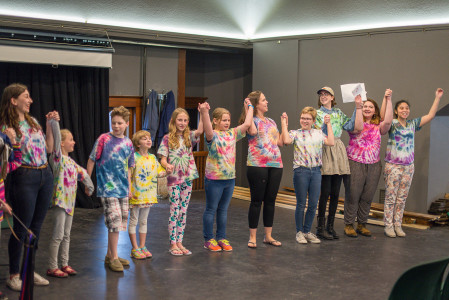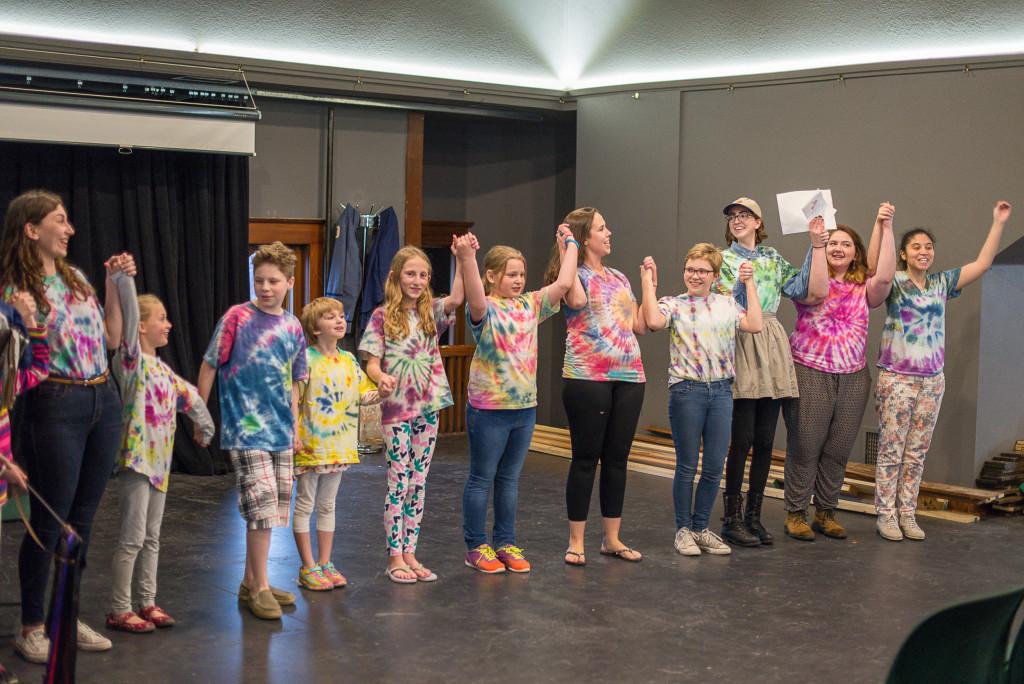Sam Curry
currysam@grinnell.edu
Another round of Neverland Juniors kicked off to cheers of “circle, circle,” as Grinnell students of college and elementary school age joined together to produce some of Central Iowa’s finest interscholastic storytelling. Neverland Players help kids from the town write, develop and perform their stories over a four-week period. The Players and children then put on a show at the end of the four weeks for their friends and family.
The Grinnell Arts Council now hosts Neverland Juniors, a shift from previous years in which it was run entirely by the student players themselves. This year has brought the additional changes that childrens’ families now have to pay a slight charge to allow them to participate. The practice sessions are also now extended for four weeks, whereas it had previously only been one.

“Now you have to pay for it and it’s an official thing … in one way it’s lessened the amount of kids that have this opportunity because you have to pay a fee, but it does make it a serious thing, and it makes the parents more connected,” said Lauren Fenton ’17.
This benefit is also passed along to the kids, who are more engaged in the plays than in the past.
“There are less kids, but they are really interested in what we’re doing, and they’re really engaged …” Fenton said.
Even if these kids are particularly engaged, it may be difficult to keep the children on task for long periods of time. The quality of the plays depends on the kids, who can sometimes become overwhelmed, but overall most children shine under the bright lights of Stewart Gallery.
“We’ve had a couple of a really shy kids, but they have really come out of their shells … but, in the past, for sure we’ve had breakdowns, like hiding in the corner, and that’s hard, but mostly all the kids like to show off … so it’s all worth it,” Fenton said.
Despite the ever-present possibility of such problems, Fenton was looking forward to the show on Wednesday night because it provides a great space in the community for parents to appreciate their children’s creativity.
“The parents think it’s really cool, and it’s a great opportunity and outlet for the kids,” Fenton said.
The performance on Wednesday night suffered no such breakdowns and instead explored ideas not typically associated with young kids, albeit in a light-hearted manner. Even though many of the writers have yet to earn their grammar school diplomas, the skits touched upon some sophisticated themes, ranging from light-hearted explorations of moral themes, such as “Light vs. Dark” by Lucy, to future HBO pitch ideas like “The Plant Story: The Story of the Plants” by Arianna Stevens. The story tells the tale of a cactus getting accustomed to living in a penthouse in New York City. “Shrimpellina” also described non-human characters in unfamiliar circumstances, through a shrimp that accidentally went to an oil beach and got too tan. The shrimp eventually finds a more accepting home and a new father. Another one of the plays, “Untitled” by Maile Latham, which told the tale of Frank, a “fairly ordinary” magic talking snake that moved to the big city, even challenged genre norms.
“Things called ‘Untitled’ are normally thought-provoking and philosophical, but mine was just about a snake,” Latham said.
Other performers relished the opportunity to play unconventional roles and expand their acting repertoire. Frances Pedersen says that she enjoyed the chance to play a villain.
“I’m working on my evil laugh,” Pedersen said.



















































